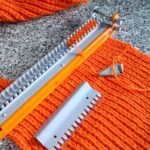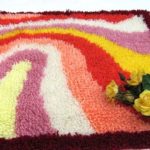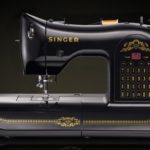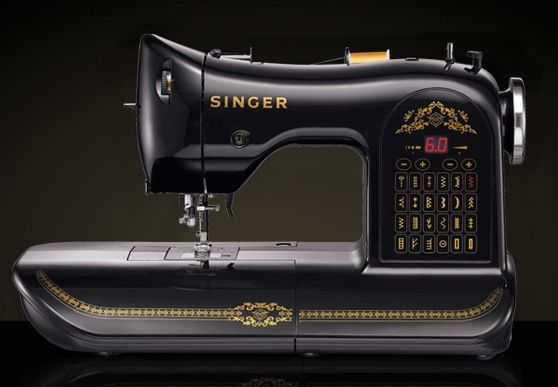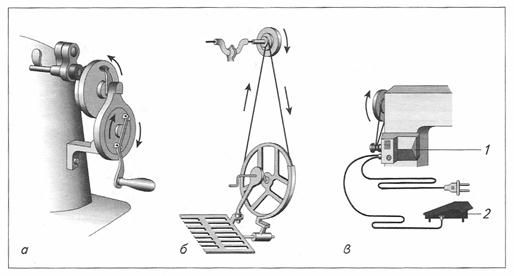What threads are needed for sewing machines
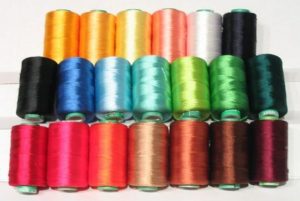 There are many different options for sewing machine thread. Their number can make it difficult to select the right one for a specific use. It's not just about finding a color that matches your fabric. There are other things to consider, such as the thickness or stretch of the fabric.
There are many different options for sewing machine thread. Their number can make it difficult to select the right one for a specific use. It's not just about finding a color that matches your fabric. There are other things to consider, such as the thickness or stretch of the fabric.
It's worth taking the time to choose the right thread because it will really make a difference to the stitching experience and your outcome.
Let's figure out what threads are needed for sewing machines.
The content of the article
Thread types
There are several types of threads that can be divided into different categories. This division depends on what the fibers are made of. In each group there are threads of different strength (number of layers) and thickness (weight).
Cotton
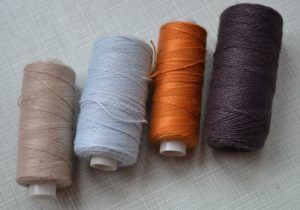
They have very little stretch and are great for cotton fabrics or sheets, but not for stretch fabrics.
IMPORTANT! Most cotton thread is mercerized.
This means that the fiber has gone through a series of chemical processes that increase shine. And increase the ability to better absorb water and dye.
Polyester or nylon
Strong fibers with some stretch. They usually contain a wax or silicone finish. This allows the thread to glide through the fabric with little friction.
Suitable for elastic materials such as synthetics and knitwear. Cotton polyester thread can be used with most materials.
Made from polyester
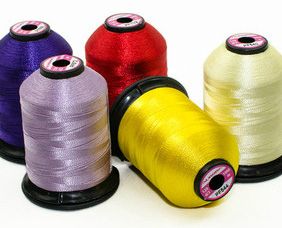
You can use this type for machine sewing as well as hand sewing. It will work with most materials. It is strong yet stretchy, making it ideal for knitting.
A type of polyester fiber is recycled thread. Eco-friendly, it is made from one hundred percent recycled polyester. It is as strong as polyester thread with the same tension. Therefore, it can be used for the same projects. It is made from recycled plastic bottles; one bottle is about a thousand meters.
Elastic
Elastic thread comes in different colors, but only used in bobbin. It must be wound by hand to obtain the correct tension.
Silk
Thin but strong, ideal for sewing on silk and wool. Silk threads are smooth and thin, so they do not leave holes in the material, and are ideally used for sewing, especially for work seams. The shine makes it ideal for decorative stitching.
Choosing threads for different fabrics
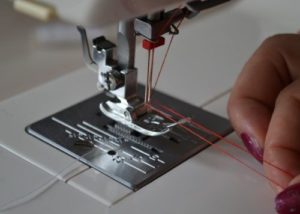
Heavy duty
Perfect fit for sewing upholstery on upholstered furniture. She also fits well for seams that will be heavily stretched, such as on work trousers or jeans.
Reference. The ultra-strong fiber can be used on thick fabrics and leather and is tear and abrasion resistant.
Transparent
Thin, flexible, soft, durable and smooth and does not melt when ironed.It is ideal for garments where the seams need to be strong but hidden and accessible in the dark or in the light to match your fabric.
Cotton thirty
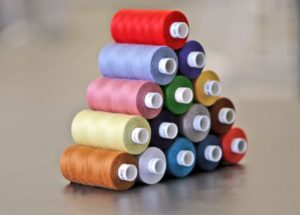
Cotton thread comes in different thicknesses. Cotton thirty is a little thicker than usual because of this works well for machine embroidery. This type is often used in machine embroidery as it produces bold stitching lines. It is available in both plain and variegated colors for decorative effects.
Cotton fifty
Size 50 is one of the most common cotton threads. This is a medium weight cotton, so it Suitable for a variety of fabrics, from light and medium cotton to heavier fabrics.
These threads are soft and elastic, but have little stretch, so Not suitable for stretch or knitted fabrics.
Denim
This type is heavier for sewing denim, making or repairing jeans by hand or machine.
You can use this type for stitching, stitching or embroidery. Comes in denim shades as well as two-tone thread to match the rough, heavy-duty twill weave.
Metal
Metallic look can be used for machine embroidery and mainly includes decorative threads. They are usually made from a mixture of polyester and other man-made fibers such as polyamide. They are ideal for decorative stitching and come in a variety of colors and finishes.
When choosing threads, we recommend using the table.
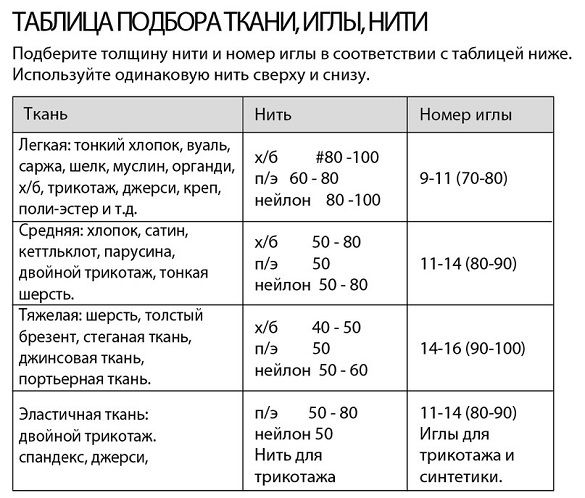
Useful tips for choosing threads
- General rule - use the same type of thread as the fabric. For example, if you are sewing with 100% cotton, use 100% cotton thread.
- If you can't find an exact color match, choose thread one or two shades darker than the fabric. A light thread will stand out more, unless you want to make the result special!
- And, most importantly, make sure that your purchase is of high quality.

